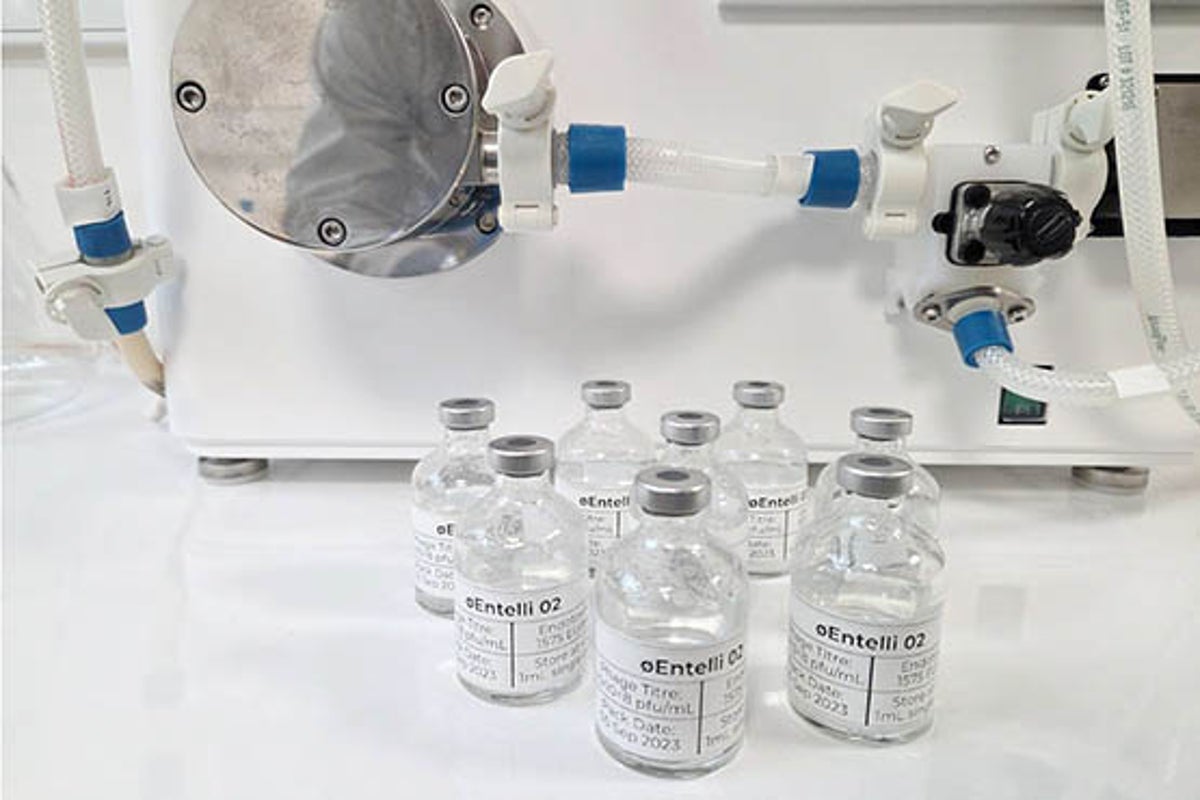Science
Scientists Develop Innovative ‘Virus Cocktail’ to Combat Superbugs

Researchers from Monash University and The Alfred in Melbourne, Australia, have introduced a groundbreaking treatment known as Entelli-02, a “virus cocktail” designed to combat superbugs that are resistant to conventional antibiotics. This innovative therapy utilizes bacterial viruses, or bacteriophages, to specifically target the Enterobacter cloacae complex (ECC), a group of bacteria responsible for severe infections that are increasingly difficult to treat.
According to Professor Jeremy J. Barr, who led the study published in Nature Microbiology, “This is the first time we’ve designed and developed a clinical-ready phage therapy product tailored to an AMR bacterial pathogen at a local hospital.” He emphasized that Entelli-02 represents not only a significant scientific milestone but also a practical tool for frontline medical use against deadly drug-resistant bacteria.
Addressing a Global Health Crisis
Enterobacter infections are notorious for their resistance to multiple antibiotics, contributing to over 200,000 deaths globally in 2019 alone. These infections have emerged in hospitals around the world, with bacteria displaying the ability to develop resistance to many last-line antibiotics. Professor Barr remarked on the seriousness of antibiotic resistance, stating, “Antibiotic resistance is one of the biggest challenges in modern medicine.”
The research team, led by Dr. Dinesh Subedi, developed Entelli-02 through a comprehensive process of phage isolation, genetics, and preclinical testing over the past decade. Initially starting with three phages, the team iteratively improved the cocktail by genetically adapting the viruses to broaden their host range. They ultimately selected two additional phages that enhanced treatment efficacy. Dr. Subedi noted, “The final product, Entelli-02, contains five phages that can kill a broad range of Enterobacter isolates and reduce bacterial loads in infected mice by over 99 percent.”
Rising Threat of Drug-Resistant Infections
The introduction of Entelli-02 comes at a critical time, as infection rates from drug-resistant “nightmare bacteria” surged nearly 70 percent between 2019 and 2023, according to a recent report from the Centers for Disease Control and Prevention (CDC). The increase has primarily been driven by bacteria possessing specific genes that confer resistance, as outlined in an article published last Monday in the Annals of Internal Medicine.
The CDC indicated that only two antibiotics remain effective against these resistant strains, and they are costly and require intravenous administration. In particular, bacteria with the so-called NDM gene, once regarded as rare and primarily linked to patients receiving medical care abroad, have seen a dramatic rise in the United States, with cases increasing more than fivefold in recent years. David Weiss, an infectious diseases researcher at Emory University, expressed concern, stating, “The rise of NDMs in the US is a grave danger and very worrisome.”
The CDC’s findings suggest that many individuals may be unrecognized carriers of these drug-resistant bacteria, raising the potential for community spread. The development of Entelli-02 offers a promising clinical solution that could significantly impact the fight against antimicrobial resistance and improve treatment outcomes for patients facing these challenging infections.
-

 Entertainment3 months ago
Entertainment3 months agoAnn Ming Reflects on ITV’s ‘I Fought the Law’ Drama
-

 Entertainment4 months ago
Entertainment4 months agoKate Garraway Sells £2 Million Home Amid Financial Struggles
-

 Health3 months ago
Health3 months agoKatie Price Faces New Health Concerns After Cancer Symptoms Resurface
-

 Entertainment3 months ago
Entertainment3 months agoCoronation Street’s Carl Webster Faces Trouble with New Affairs
-

 Entertainment3 months ago
Entertainment3 months agoWhere is Tinder Swindler Simon Leviev? Latest Updates Revealed
-

 World2 weeks ago
World2 weeks agoBailey Announces Heartbreaking Split from Rebecca After Reunion
-

 Entertainment4 months ago
Entertainment4 months agoMarkiplier Addresses AI Controversy During Livestream Response
-

 Entertainment2 weeks ago
Entertainment2 weeks agoCoronation Street Fans React as Todd Faces Heartbreaking Choice
-

 Science1 month ago
Science1 month agoBrian Cox Addresses Claims of Alien Probe in 3I/ATLAS Discovery
-

 Health4 months ago
Health4 months agoCarol Vorderman Reflects on Health Scare and Family Support
-

 Entertainment4 months ago
Entertainment4 months agoKim Cattrall Posts Cryptic Message After HBO’s Sequel Cancellation
-

 Entertainment3 months ago
Entertainment3 months agoOlivia Attwood Opens Up About Fallout with Former Best Friend





















